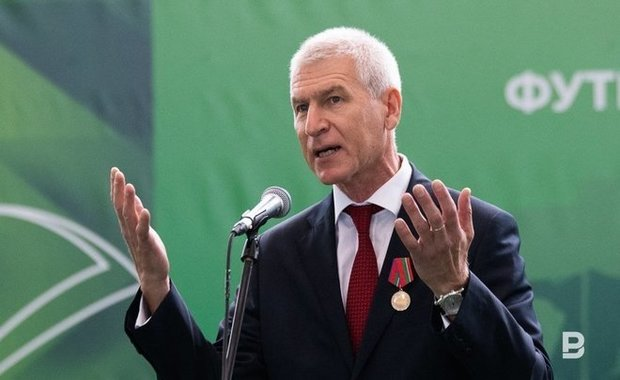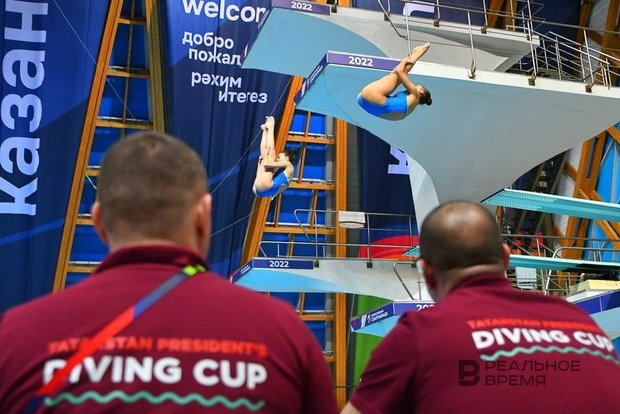Russia banned from University Games by 10th anniversary of Kazan Universiade
How to survive this sports winter being in international isolation
The Winter University Games will open today, on 12 January, in Lake Placid, US. It is the first multi-sports tournament where Russian athletes aren’t allowed to compete. Realnoe Vremya’s sports staff reflects on the mode representatives of winter sports will have to compete in.
University Games in the homeland of ill-fated Olympics
Lake Placid will become a standing joke among Russian athletes. The Winter Olympics kicked off there back in 1980 that were held amid global hatred to representatives of the Soviet Union whose troops invaded in Afghanistan in December 1979. Witnesses recall how local anti-Soviet people insulted our athletes on neighbouring hills during the solemn opening ceremony of the Games. Living conditions in the “Olympic village” that was used as prison for minor criminals after the Games were equally unacceptable for everybody.
By the way, the Winter University Games in Lake Placid in 1970 were the predecessor of that Olympics. It was not necessarily a “rehearsal” of the Games because the application for the Olympics was sent later, but of course some venues were used in both tournaments.
Closing the topic of university competitions, we will note that US representatives aren’t historically interested in them. Yes, university sport is very developed in America that replaces the country’s nationals. The NCAA, the National Collegiate Athletic Association, controls 23 competitions. Not the strongest American athletes who didn’t win medals in Krasnoyarsk in 2019 are competing at the Winter University Games. They had one silver at the previous Universiade in Astana in 2017. Perhaps, they will go out at home, gather the strongest, but it is obvious even now that without Russian athletes this will be a second-rate Universiade.
Cheering only for some
This is not being a super patriot, it is a fact. For instance, the absence of the Russian youth was almost unnoticeable at the 2023 IIHF Ice Hockey U20 World Championship, the tournament itself was amazing and it is remembered for a close fight in decisive matches, favourites’ defeats reminding us of the FIFA WC in miniature. We, in turn, honestly didn’t remember the Russian team after the final between Argentina and France.
So here it is same, the final between Canada and Czechia, a third-place match surprisingly full of goals scored between USA and Sweden, a semi-final between the Czechs and Swedish, quarterfinals between Canadians and Slovaks and Swedish and Finns presented fans a feast of hockey. As for the Universiade, the absence of Russians will be remembered in every competition except for freestyle skiing and women’s hockey. Skiing (Scandinavia doesn’t spoil the Universiades with its presence), biathlon and figure skating (favourites don’t go there in general) won’t be even second-class competitions. While South Korea and Japan, which are traditionally strong thanks to their university delegations, aren’t famous in many winter sports. Stars can be expected only in figure skating, and all of them represent Japan — Yuma Kagiama and Shun Sato, Mai Mihara and Kaori Sakamoto. However, Ukraine that wanted to miss Krasnoyarsk in 2019 itself, which was the latest Universiade, is getting ready to compete.
The list of figure skating competitors that was announced made us happy with a series of athletes such as Viktoria Azroyan who started to train in Kazan and whose father Vazgen Azroyan who worked here as a coach created a pair with “Estonian” Artur Gruzdev. The dance pair represents Armenia. Perm-born Marak Suntsev will compete for Finland, Italian Nikolay Memola will for his father’s homeland though his mother Olga Romanova is from Saint Petersburg where Memola comes to train.

Russia losing operation management
Current FISU President Oleg Matytsin suspended his activity on the post (moreover, not because of the start of the special military operation but to follow WADA’s instructions), and Russia rapidly lost its positions in the International University Sports Federation. Neither Matytsin nor his general advisor at FISU Igor Sivov were able to do anything at the moment when Russians’ any influence on decision making in international organisations was important.
Meanwhile, Yekaterinburg was seriously preparing to host the Summer University Games in 2023. In terms of the 2023 Universiade host, everything ended happily because China’s Chendgu is ready to host the Games instead of those postponed in 2021, but Russia spent a lot on the preparation, and here it is a matter of compensation. Though the postponement of the 2023 IIHF Ice Hockey U20 World Championship from Novosibirsk and Omsk where it was planned to be held allowed some managers to sigh out with relief. Only G-Drive Arena in Omsk is ready among two scheduled ice rinks, Novosibirsk announced the first match only on 18 January, while a new metro station Sportivnaya opened before New Year’s Eve. As it often happens in Russia, sports competitions helped to solve citizens’ problems because this metro station became the first Novosibirsk opened after the dissolution of the USSR.
Back to the topic, the Russian sports management will need to make some decisions to compensate our athletes for the lost international season. The last year was “light” in this respect because the Winter Olympics became the peak competition, while this year is rich in tournaments. Besides the University Games traditionally important for Russian athletes, it is the FIS Nordic World Ski Championships in Slovenian Planica, the World Biathlon Cup in Germany. The national teams’ competitions they won’t compete in, both youth and junior teams, will have to be compensated in a new formula. The format of the Solidarity Games hosted in Kazan last year won’t do for winter sports. Asian, African, Latin American countries, some European states that are friendly towards Russia aren’t renowned in skiing and biathlon and so on. From this perspective, let’s say, the meetings between President of the Russian Cross-Country Skiing Federation Yelena Vyalbe and President of Iran’s Skiing League Mehdi Azadwari are nothing but courtesy visits. Nothing has been heard about Iran’s skiers until now except for a bronze in a mixed freestyle competition at the Winter Military Olympics in Sochi in 2017. As for Russians, here we can talk about the competitions held in 2018 for winter sports that were banned from the Olympics in Pyeongchang en masse with those award criteria for medallists and competitors.

Need to remember lessons of the past
Paradoxically but the negative experience of Pyeongchang in 2018, both Olympic and Paralympic, can come in handy for Russians. In fact, “a limited contingent” performed at the Games and we completely missed the Paralympics, and the bitterness of the loss of the upcoming season isn’t a novelty for Russians. The country’s strongest skiers are all competing in the Russian Cup that immediately rose in value like it happened to figure skating tournaments earlier. Plus, one can take a break literally because the load on the generation of Bolshunov, Spitsov and Chervotkin that they had to shift to big sport almost directly from juniors. “Take care of your health, if you’re healthy, you will have it all,” skier from team Tatarstan Anna Nechayevskaya who is back to sport after giving to birth very accurately considered her state. She, Yulia Stupak (Belorukova), Veronika Stepanova aren’t in their best shape yet as well as some leaders of the male team. And the omission of the championship in Planica doesn’t seem catastrophic. Our skiers have had too much on their shoulders since 2017 when the men and women’s team was literally bombed by WADA.
We feel a bit pity for the younger generation who is following the footsteps of the leaders. As for the compensation for international competitions, the participation in tournaments held under the aegis of Military Games should perhaps be considered. It is a military sports organisation holding kind of Olympics. Moreover, we will repeat that the latest was in Sochi in 2017. The next winter competition was to be in Germany but was postponed. However, military athletes have numerous world cups. Curiously, the organisation itself organises junior competitions too. And the 3rd “Olympics” among juniors calmly took place in Saint Petersburg from 4 to 12 August. Consequently, this organisation doesn’t obey the IOC, WADA with their decisions on the isolation of Russian sport.
As for winter sports, precisely the armies of Austria, Germany, Italy, France, Eastern Europe are sponsors of leading athletes of these countries. Italian Hofer, Oberhofer and Co are police officers, German Sachenbacher-Stehle and Austrian Landertinger serve in the German Bundeswehr and Austrian Bundesheer. French Furkad, Slovenian Gregorin or Swiss Cologna are also here. Yes, when somebody says that Switzerland doesn’t have an army... Its representatives competed at the Military Games in 2013 and won 12 medals. The list of competitors is very solid, often excelling that of the Universiade. We remember Russian skier Alexey Chervotkin headed for World Championship in 2017 immediately after the Military Games. It is another potential loophole and perhaps even a semi-open door can be found at the World Police & Fire Games. During the Soviet era, these competitions were named Dinamiada. Clearly, now one should knock all the doors, not only feel sorry about the atmosphere of isolation of Russian sport trying to use not only “vertical” but also “horizontal” connections.
Reference
The author’s opinion does not necessarily coincide with the position of Realnoe Vremya’s editorial board.